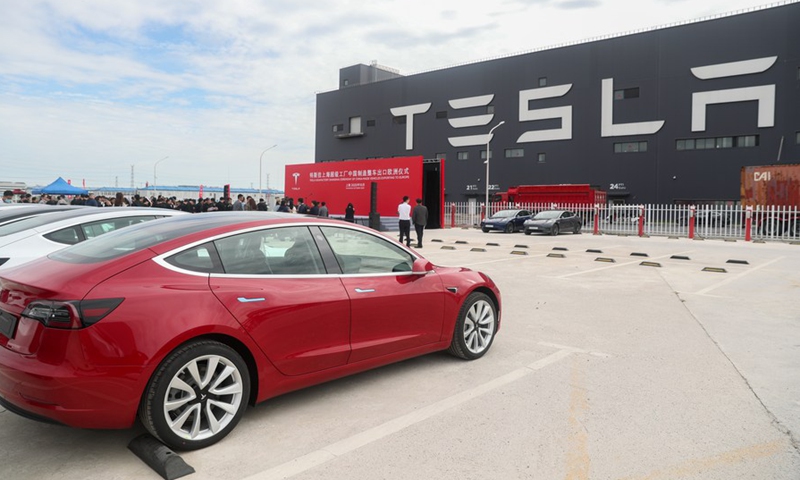Tesla recalls over 280,000 vehicles in China on cruise control problem following recent missteps in local market

Photo:Xinhua
US electric vehicle maker Tesla Inc will recall a total of 285,520 China-made and imported Model 3 and Model Y vehicles starting from Saturday due to issues with their cruise control system, China's market regulator said on Saturday.
The latest recall added to a series of the company's missteps in China that could dampen consumers' interest in one of the top selling electric cars in the world's largest car market.
The recall plan includes 246,921 Model 3 cars produced from January 2019 to June 7, 2021 and 38,599 Model Y cars produced in 2021, according to a statement published on the site of State Administration for Market Regulation.
The cruise control problem can cause the driver to activate the active cruise function by mistake in a series of scenarios including a sudden increase of speed that goes beyond the driver's expectation. In extreme cases, it can lead to a car crash, said the statement.
In response to the recall plan, Tesla China on Saturday apologized for the inconvenience caused to impacted consumers, saying customers can complete the recall procedure online via OTA updates. For users who can't finish the process through remote updates, Tesla will contact them to upgrade the cruise control system of their cars.
Tesla also vows it will constantly improve safety conditions of its products in accordance with national requirements.
In early June, Tesla has recalled more than 700 imported Model 3 electric vehicles sold in China over seat belt issues, loose bolts and other quality problems.
The US automaker, which is in hot water in China over a recent spate of its cars involved in accidents and a public relations crisis, was called to respond to the surging complaints and concerns over quality issues from consumers. Last month, Tesla posted on its Chinese social media Sina Weibo account six apology statements, trying to win Chinese consumers' confidence back and restore its brand image.
